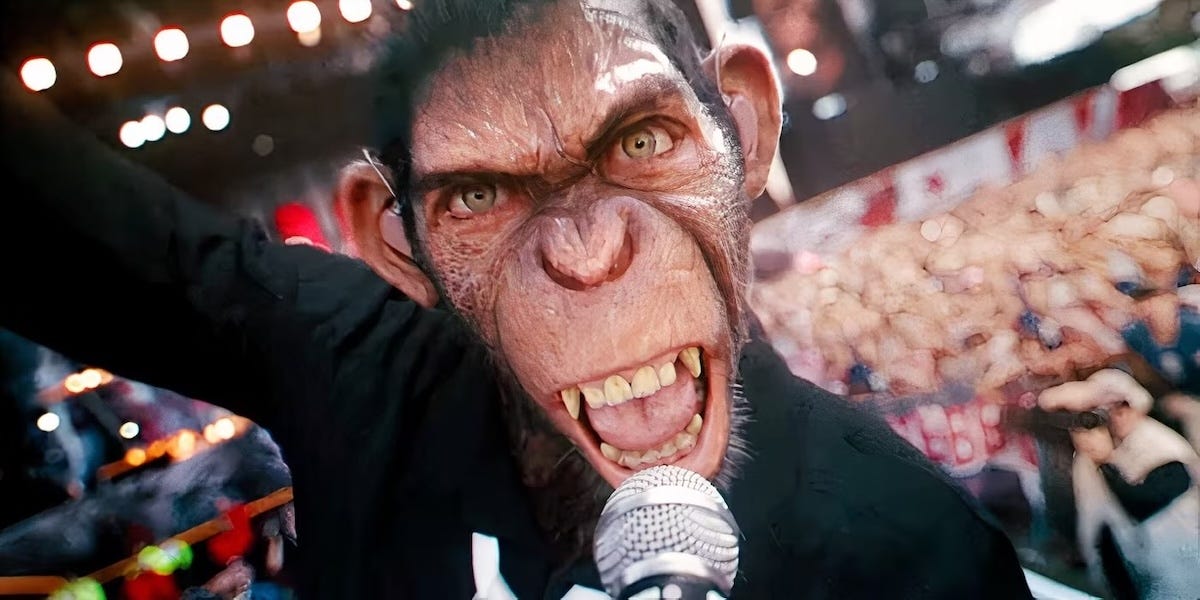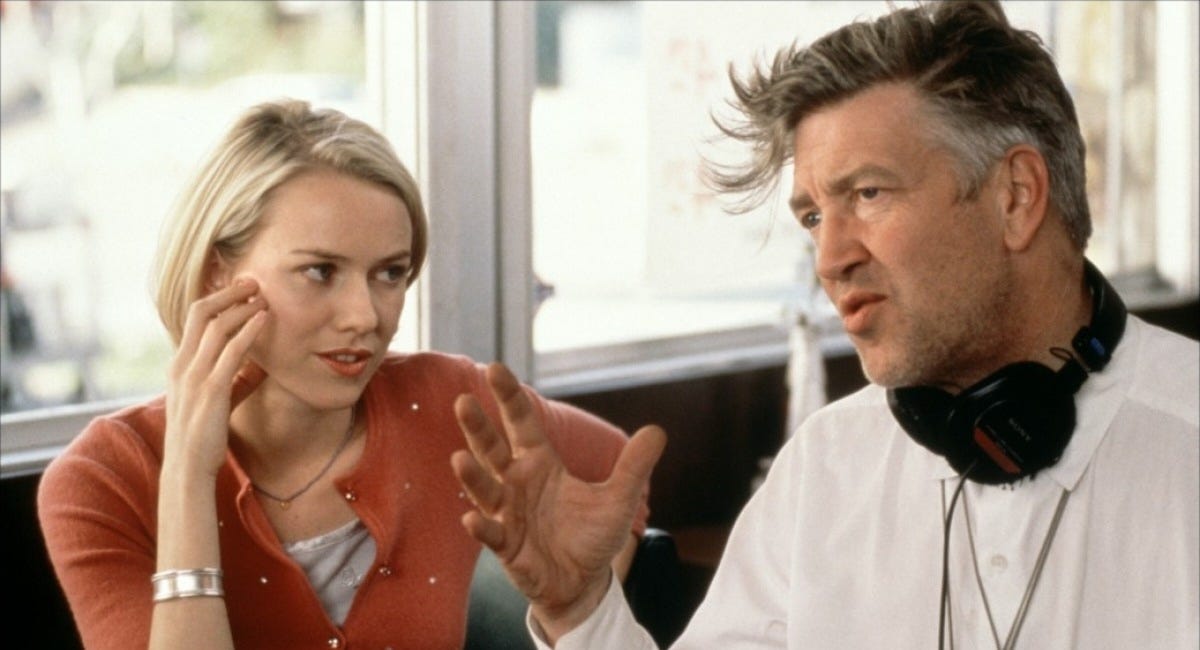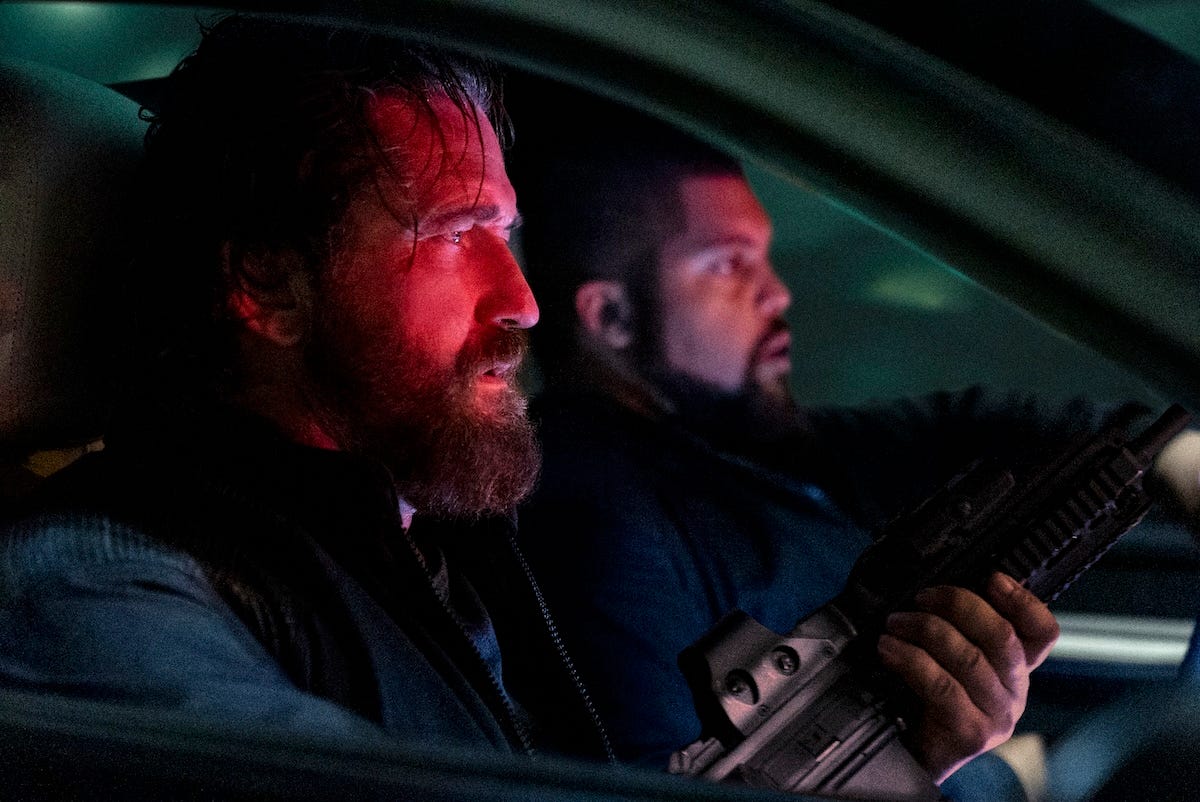If you aren’t a paying member yet—and if you’re seeing this, you aren’t—you’re missing out on tons of stuff, including bonus episodes of Across the Movie Aisle on Fridays. Kick off your new year right by signing up today! Way back in 2024 after the Amy Winehouse biopic Back to Black bombed in the United States, I quipped that it shouldn’t be surprising American audiences had no interest in a movie about a one-hit wonder that was marketed as if it were Bohemian Rhapsody. Which is to say, the marketing mistakenly leaned on the musician’s hits as a draw to get people into the theaters. After getting some pushback from outraged Europeans—she was a bigger deal there than here—I quipped that it made about as much sense as opening a movie about Robbie Williams on 2,000 screens here. I did not realize that plans were afoot to do just that: Better Man is a musical biopic about the life of Robbie Williams starring Robbie Williams playing himself as a motion-capture CGI chimp (more on that in a moment). The film was sold to American audiences with monkey-Robbie looking into the camera in a trailer and saying “I’m Robbie Williams,” followed by roughly 99.9 percent of Americans saying “Yes, and?” which was in turn followed by much of the rest of the English-speaking world saying “Wait you don’t know who Robbie Williams is?” which was in turn followed by accusations of parochialism lobbed back and forth across the Atlantic. (And, I guess, Pacific, since I presume the good people of Oceania also love Williams.) Like Back to Black, Better Man is bombing. Not because of the quality of the film, mind you, but a complete miscalculation in advertising tactics. Advertising is arguably the most important and quite frequently the hardest part of making movies. It’s why stars earn big paychecks (name recognition theoretically means heightened awareness and a built-in fanbase) and why intellectual property dominates the release schedule (same basic concept, just with brand names rather than actor names). If you pitch Better Man to American audiences as “the Robbie Williams movie” they’re going to stare at you blankly. However, if you pitch it as “the musical where a CGI monkey does deranged amounts of cocaine while getting handjobs in clubs all while battling demonic versions of himself and coming to terms with the fact that the only reason he wants to be famous is to fill the hole in his soul that comes from decades of neglect by his loutish, clownish father” … well, I don’t know if you’d have a hit on your hands, precisely, but you would at least have a movie that American audiences might be interested in. Downplay the reality of the story; play up the surrealism of your movie. “Better Man” means nothing to me. “Drug Monkey” at least makes me say “Wait, what?” Because musical biopics aren’t like historical biopics such as Oppenheimer or The Imitation Game in which audiences hope to experience the drama inherent in world-important figures. No, as I noted in my review of A Complete Unknown, the reason people go see musical biopics is that they like to hear actors playing musicians they recognize sing songs they enjoy hearing. It’s why Bohemian Rhapsody was a massive hit and Rocketman a milder one and why A Complete Unknown is performing solidly if unspectacularly and why last year’s Bob Marley: One Love legged out to nearly $100 million domestic. So I can’t really tell you if Better Man succeeds as a musical biopic since I don’t really care about the music or the musician involved. I can tell you that it kinda-sorta succeeds as a deranged vision of celebrity excess, one that acknowledges the base truth of so much of modern pop stardom: that it’s empty, that it’s manufactured, that it’s pursued by people seeking little more than public adulation to fill the vacuum within themselves. Williams is playing himself as a monkey because he’s unevolved, his maturity having been stunted since he became famous at the age of 15 when the boy band Take That took off in the United Kingdom. The simian aspect also eases audiences into the surrealism of the world of the musical; we don’t blink when Take That’s antics spill into a London street and then into a record store and then a club and on and on, even if this particular sequence has the visual panache and coherence of Argylle-era Matthew Vaughn. Better is a later song, after Williams has been kicked out of the band, chronicling via montage his marriage to Nicole Appleton (Raechelle Banno), one that began with joy and crumbled into apathy and worse after she was pressured into getting an abortion at the behest of her record label. It’s a compact story of love lived and lost badly, one that makes plain the affection the two shared without lingering too long on anything that might distract from us seeing a monkey chug bottles of vodka or do battle with hundreds of duplicates of himself in the crowd of the largest concert in English history. In a way, the movie plays like a 135-minute ode to parental neglect, since Williams is driven to the heights of pop stardom to prove to his worthless, absent father that he has “it.” Prove it he does, ending with a triumphant one-man show that he closes with a rendition of “My Way.” Yet one can’t help but think of another film that ends with the same song: Goodfellas. Success at the cost of one’s soul might not count for much. But then, it doesn’t appear as though Williams had much of a soul to lose. So maybe it’s a wash in the end. RIP David Lynch. Bill Ryan wrote a nice obit for us; I hope you click the link above and give it a read. Lynch has always been an interesting director to me because I don’t get what he’s up to in most films, but I often find it entrancing nevertheless. Despite the not-getting I kept trying; I’m about due for another Mulholland Drive rewatch. My point is, he’s the sort of filmmaker who made me want to be a better film watcher. And there are few directors I can say that about. The biggest fans of Den of Thieves (2018) get annoyed when you refer to the writer-director Christian Gudegast’s film as “Dirtbag Heat,” a reference to Michael Mann’s 1995 opus. But it really is a pretty perfect analogy: Equally split in POV between cops and robbers and their families, that film opens with an assault on an armored car and closes with a big shootout on the streets of Los Angeles, all while hammering home the bloody brotherhood of alpha-grade excellence. There are just more tats in Gudegast’s version, and Al Pacino has never looked as greasy as Gerard Butler does here. (Well, maybe for a couple of scenes in Cruising.) If Den of Thieves was “Dirtbag Heat,” then Den of Thieves 2: Pantera is a bit like “Dirtbag Zero Dark Thirty”: slower and more meditative than the first, the sequel is more interested in process and procedure, insinuating us into the psyches of the characters and depicting how the relentless, all-consuming pursuit of your goal can leave a psychic hole once that goal is achieved. Den of Thieves 2: Pantera picks up some years after the original. Big Nick (Butler) is still trying to get permission to go after Donnie (O’Shea Jackson Jr.), who disappeared into the ether with an unknown amount of untraceable money stolen from the Federal Reserve. Donnie pulls off a diamond heist in Antwerp that trips Nick’s radar; eventually, he’s able to convince a contact at the FBI to get him plugged into the Pantera task force going after a ring of Europe-based criminals. Long story short: Donnie’s diamond heist was the first leg of a bigger plan to steal even more diamonds, and Nick—tired of being a divorced, broke loser in Los Angeles—wants in on the job. But this time, “no one gets hurt.” There’s a real vibe shift between the two movies. Whereas Big Nick in the original was constantly chugging Pepto to fight off hangovers and lobbing loaded insults, here he’s more subdued, almost cowed; there’s a wistfulness to his relationship with Donnie and a desire for deeper connection with Jovanna (Evin Ahmad), the female head of Donnie’s team. But that subdued sense extends to the shootouts as well: For an action-thriller, Den of Thieves 2: Pantera is incredibly light on the action. There’s a too-slick heist at the beginning and the big car chase/shootout at the end almost feels perfunctory, particularly compared to the original’s opening and closing set pieces, involving dozens of cars and dozens of shooters each. This is tighter, more contained. Again, the attitude toward violence as a whole called to mind Zero Dark Thirty, particularly that efficient closing raid. Just, you know, amped up a bit for effect here. (There’s another reason it feels a lot like Zero Dark Thirty, but I’ll save that for a footnote because it’s a pretty big spoiler.¹) All that said: I enjoyed Pantera because it’s functionally a hangout movie and I liked hanging out with Donnie and Big Nick. There are these great little extratextual moments, like when Donnie (son of Ice Cube) shoots Nick a look when he says “fuck the police” or when Donnie tries to get his gang of Eurotrash to vibe to a Snoop Dogg track when they prefer EDM. Butler and Jackson also have wonderful chemistry; there are 20 minutes in the middle of the film when the pair butt heads with some old-school European gangsters where it felt like things were about to tip over into a buddy comedy. It may not be great cinema. But it’s solid dirtbag cinema. 1 Zero Dark Thirty has one of the best endings of any movie of the 2010s, just a lingering shot of Jessica Chastain breaking down into tears in the back of a cargo jet as she realizes she is an empty husk after having overseen the execution of Osama bin Laden. Call it a metaphor for the uselessness of “winning the war on terror” or whatever, it’s a striking image. There’s a similar moment at the end of Pantera where Gerard Butler, having accomplished his goal, has a similar sense of sadness and emptiness. He has accomplished what he has been trying to do these last seven years, but at what cost? Of course, this being Dirtbag Zero Dark Thirty, it doesn’t have to end with that sort of deep poignance; he can have his cake and eat it too. And, by extension, so can the audience. You’re a free subscriber to Bulwark+. For unfettered access to all our newsletters and ad-free and member-only podcasts, become a paying subscriber. Did you know? You can update your newsletter preferences as often as you like. To update the list of newsletter or alerts you received from The Bulwark, click here. |




